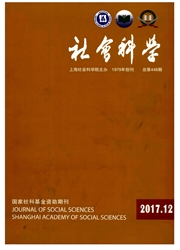

 中文摘要:
中文摘要:
知识的形成与确证是认识论的重要问题。围绕这个问题,语境论与怀疑论进行了长期的争论。认识的语境论认为,知识的形成与确证是依赖语境的,也即,知道还是不知道某个命题的意义在语境中是能够确定的,怀疑论则认为知道还是不知道与语境无关,知识不能确证,并举出各种例子如斑马案例予以反驳。为此,怀疑论者提出了怀疑论难题挑战语境论的主张,语境论内部则形成了诸如条件语境论、相关选择语境论等来回应怀疑论。无论双方争论的结果如何,怀疑论难题的提出为认识的语境论的产生与发展提供了契机,极大地推进了认识论的发展。
 英文摘要:
英文摘要:
The form and justification of knowledge is an important problem of epistemology in our times,on which epistemic contextualism and skepticalism debate for a long time.Contextualists argue that the form and justification of knowledge depends on its context,that is,knowing or not-knowing can be justified in its context.But skepticalists think that knowing or not-knowing does not depend on its context,and that knowledge does not need to be justified.For this purpose,skepticalists put forward a skeptical paradox challenging the ideas of contextualism.At the same time,contextualists develope different forms such as conditional contextualism and relevant alternative contextualism to refute skepticalists.No matter what the outcome of the debate,skeptical paradox provides an opportunity for the development of epistemic contextualism.
 同期刊论文项目
同期刊论文项目
 同项目期刊论文
同项目期刊论文
 期刊信息
期刊信息
